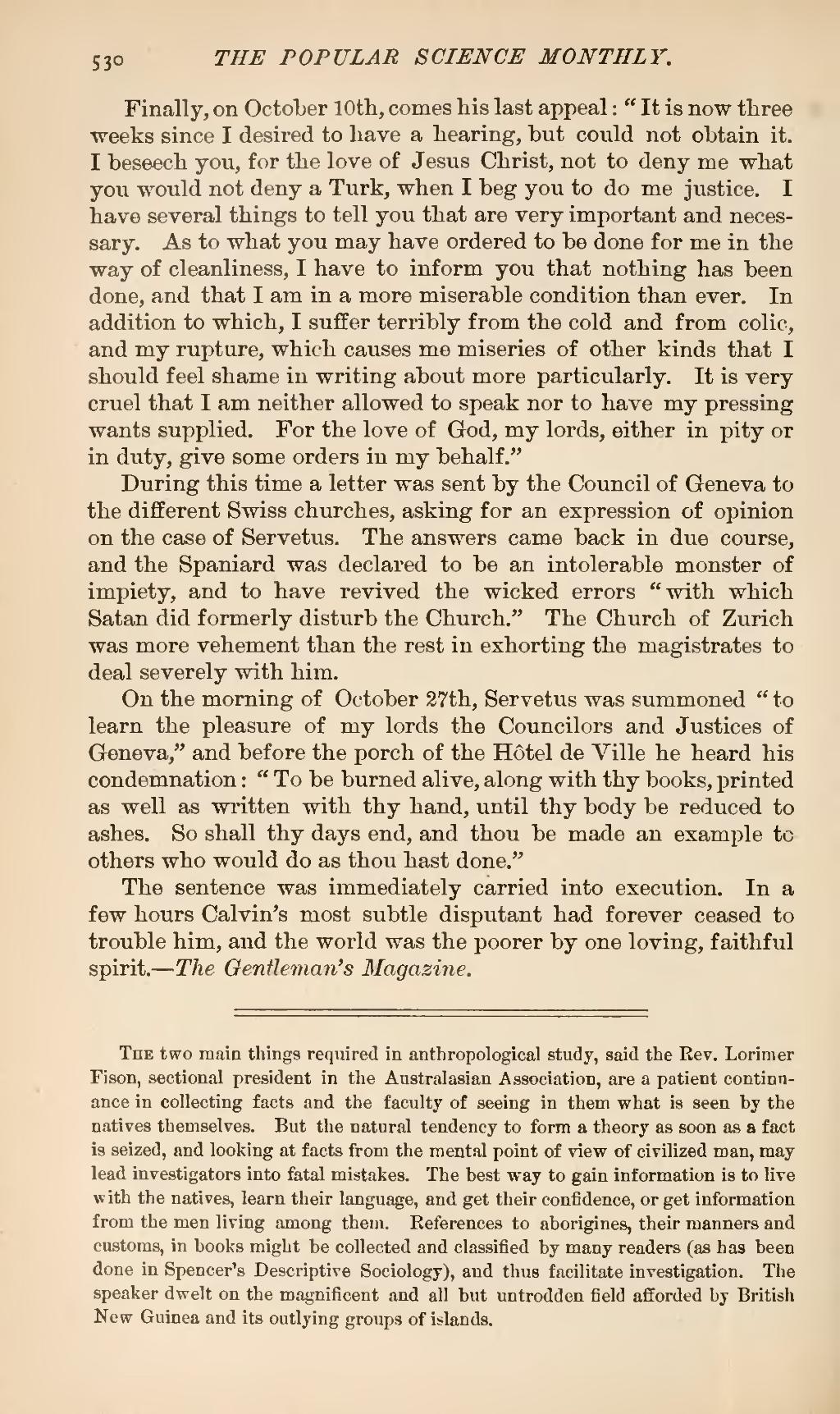Finally, on October 10th, comes his last appeal: "It is now three weeks since I desired to have a hearing, but could not obtain it. I beseech you, for the love of Jesus Christ, not to deny me what you would not deny a Turk, when I beg you to do me justice. I have several things to tell you that are very important and necessary. As to what you may have ordered to be done for me in the way of cleanliness, I have to inform you that nothing has been done, and that I am in a more miserable condition than ever. In addition to which, I suffer terribly from the cold and from colic, and my rupture, which causes me miseries of other kinds that I should feel shame in writing about more particularly. It is very cruel that I am neither allowed to speak nor to have my pressing wants supplied. For the love of God, my lords, either in pity or in duty, give some orders in my behalf."
During this time a letter was sent by the Council of Geneva to the different Swiss churches, asking for an expression of opinion on the case of Servetus. The answers came back in due course, and the Spaniard was declared to be an intolerable monster of impiety, and to have revived the wicked errors "with which Satan did formerly disturb the Church." The Church of Zurich was more vehement than the rest in exhorting the magistrates to deal severely with him.
On the morning of October 27th, Servetus was summoned "to learn the pleasure of my lords the Councilors and Justices of Geneva," and before the porch of the Hotel de Ville he heard his condemnation: "To be burned alive, along with thy books, printed as well as written with thy hand, until thy body be reduced to ashes. So shall thy days end, and thou be made an example to others who would do as thou hast done."
The sentence was immediately carried into execution. In a few hours Calvin's most subtle disputant had forever ceased to trouble him, and the world was the poorer by one loving, faithful spirit.—The Gentleman's Magazine.

